| Home Page | New Data | Chronology | Cast Coins | Struck Coins | Paper Money | Links/Reference |
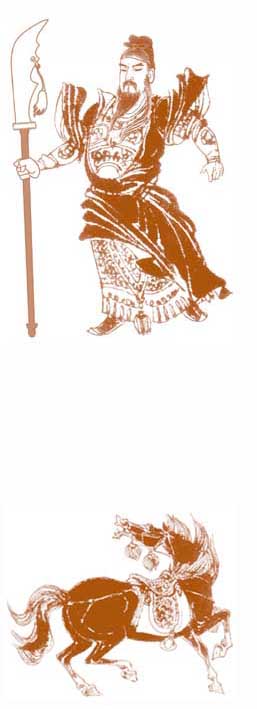 | Yung Cheng Cash of Kansu Province has been regarded as an efficacious charm by Chinese since 1726 One of my western friends told me that Chinese always profess to stand in great fear of evil spirits and unpropitious influences. They have designed numerous spells and charms to preserve themselves from such spirits and influences. I think it is true in the ancient time. In those days, Chinese believed that the ancient cast cash could get rid of the evils and it was also the symbol of wealth. On the other hands, red things were believed to be serviceable in keeping away evil spirits by Chinese too. The cash-sword was another famous type of weapons considered very efficacious in keeping away evil spirits by Chinese in the past. But the cash-sword was too inconvenient to carry. These three types of practice for preventing mutilation by evil spirits have lasted for more than a thousand of years by Chinese. In 1726, Chinese was happy to find that there was a type of copper cash cast by the Kungchang Mint of Kansu Province, on the reverse of the cash, the Manchu script "Kung" looked like a 關刀 "Kuan Tao", the broad sword, used by the God of War, or known as 關帝 "Kuan Ti" (means Emperor Kuan) by Chinese. Chinese found that it was easy to combine the three kinds of method to make a really formidable weapon, of which the malicious spirits are exceedingly afraid! Of course, Yung Cheng copper coins of Kansu Province were in frequent use as charm later. They were suspended by the red strings, and worn about the bodies, or hung up on the outside of bed-curtains. They were sometimes sewn on the hats of children as charm. And these types of copper cash were well known as 關刀錢 Kuan Tao Chien by the Chinese in the Qing Dynasty. As I know that they are known as 關刀雍正 Kuan Tao Yung Cheng by Japanese. |
|
Why did 關羽 Kuan Yu become a saint after he passed away? 關羽 Kuan Yu or Guan YU, his courtesy name was Yun Chang 雲長 was a general of the State Shu in the Three Kingdoms Period (AD220 - AD280). He used a broad sword as weapon [known as Kuan Tao 關刀]. After his death, Chinese respect him because he symbolizes the royalty to his country and friends. The deed of kindness and honesty that made Kuan Yu a saint. He was posthumously known as Kuan Kung or Guan Gong 關公 by the children, He was probably one of the most respected men in the ancient China. Temples were built to worship him. Practically all Chinese emperors in the later dynasties revered him as the Emperor Guan 關帝 or God of War, for a variety of reasons. A very common practice in Hong Kong, a shrine for the Emperor Guan 關帝 is located in each police station. Most Chinese policemen pay respect to him. It is more interesting that the Emperor Guan 關帝 is said to have been good at managing finances and so is also worshipped by Hong Kong businessmen as the God of Commerce. You can find his figure, worshipped in every restaurants in Hong Kong. |
|
There are many varieties of Kungchang cash of Yung Zheng T'ung Pao existing. It is too numerous to list expecially those cast with a very broad rim on both the obverse and reverse sides. I can only post the the major or popular varieties on this page. |
| Yung Zheng T'ung Pao Cash of Kungchang Mint casting with a very broad rim |
|---|
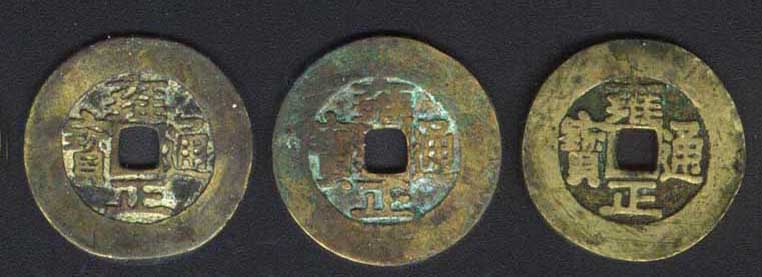 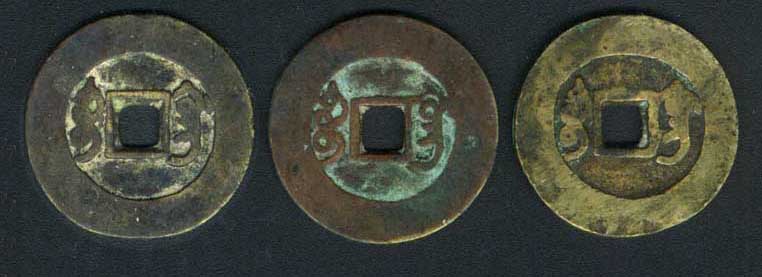 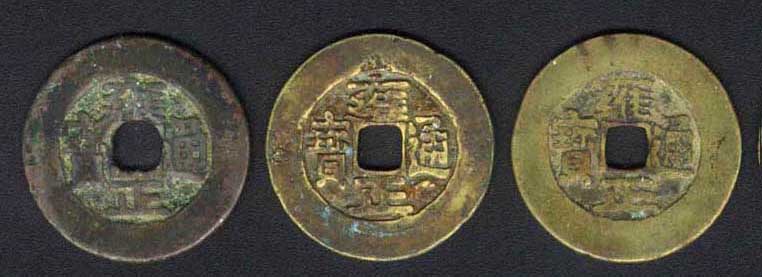 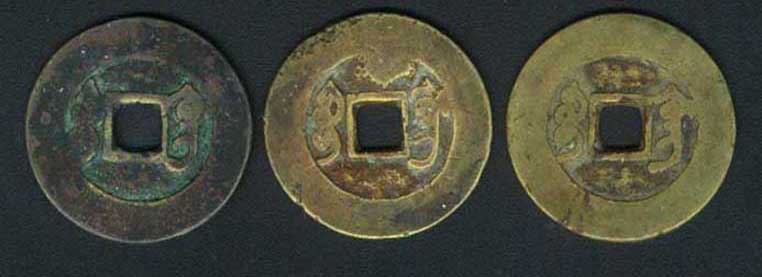 |
| Yung Zheng T'ung Pao Cash of Kungchang Mint casting with a common rim |
|---|
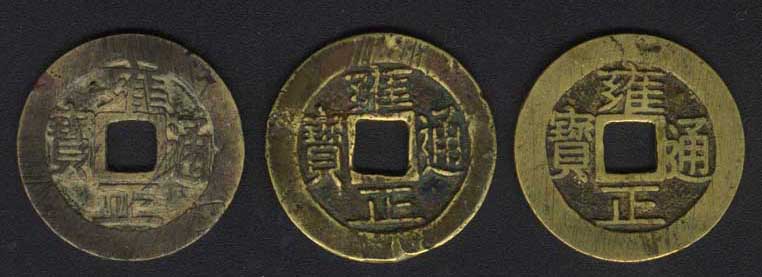 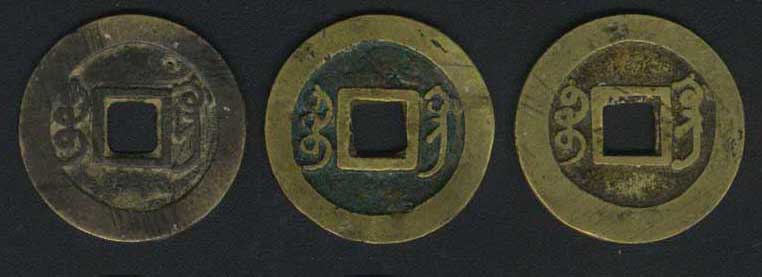 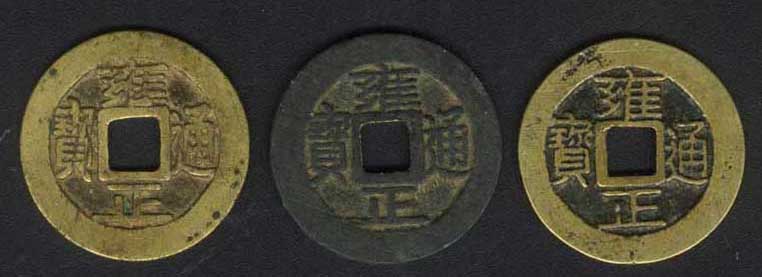 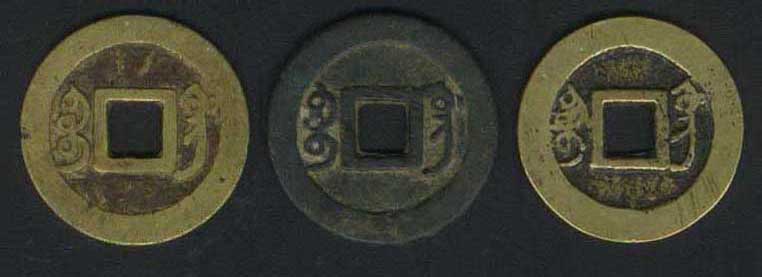 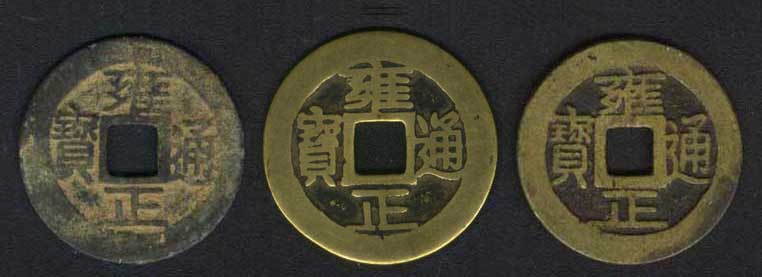 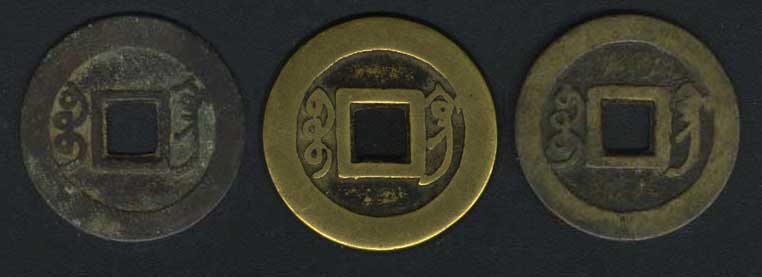 |
My Spare Yung Zheng T'ung Pao Copper Cash on Sale
More about Yung Zheng T'ung Pao Part A, or Part B, or Part C, or Part D, or Part E
Another famous copper cash used as charm
is  "Lohan Ch'ien" (or Lohan cash). [Lohan: disciples of Buddha]
"Lohan Ch'ien" (or Lohan cash). [Lohan: disciples of Buddha]